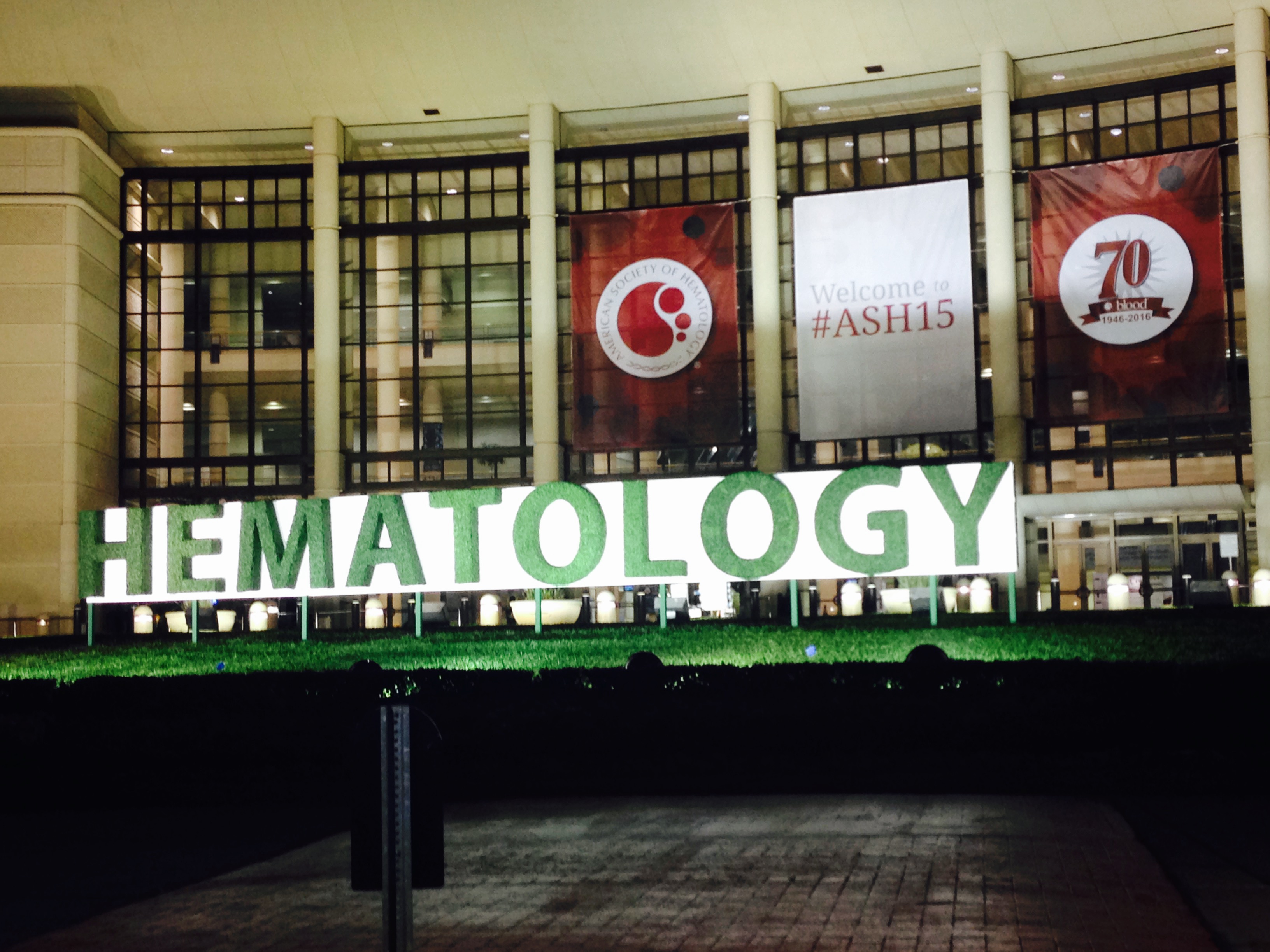White Plains, NY – December 15, 2015 – For the more than one million Americans living with or in remission from a blood cancer, there is more hope than ever for new treatments and even cures, not someday, but today.
Clinical findings presented at the 57th American Society of Hematology (ASH) Annual Meeting, in Orlando, December 5-8, made it increasingly clear that new discoveries in precision medicine and immunotherapy are leading to breakthrough therapies for a wide array of blood cancer patients. As the world’s leading voluntary non-profit dedicated to finding cures and ensuring that patients with leukemia, lymphoma, myeloma and other blood cancers have access to lifesaving treatments and cures, LLS has been funding many of the leading researchers who presented their work in targeting genetic and molecular mutations and effectively harnessing the body’s immune system to fight cancer.
Following are some of the scientific highlights presented at ASH:
CAR-T
Chimeric antigen receptor (CAR) T-cell immunotherapy, in which immune system T-cells are removed from the patient’s body and reprogrammed to find and attach the tumor cells continues to show promise. LLS funds CAR-T programs at a number of institutions and is dedicated to a comprehensive CAR-T education program as well.
- LLS has been funding a CAR-T program at the University of Pennsylvania for nearly 20 years, focused on patients with relapsed, treatment-resistant acute lymphoblastic leukemia (ALL) and chronic lymphocytic leukemia (CLL). Stephen Grupp, M.D., Children’s Hospital of Philadelphia, provided an update showing that of 53 children treated with CAR-T for relapsed ALL, 50 (94 percent) achieved a complete remission. While 20 patients subsequently relapsed, this treatment has become a life line for children and adults who have exhausted all other options. Some patients in the trial have achieved complete responses that have been sustained for long durations.
- Now the CAR-T approach is being expanded to other blood cancers. Stephen Schuster, M.D., treated 30 patients with a CAR-T for lymphoma, and observed a 47 percent response rate.
- Kite Pharma, a partner in LLS’s Therapy Acceleration Program (TAP), which establishes collaborations with biotechnology companies, is also advancing a CAR-T for lymphoma (KTE-C19), which just received FDA breakthrough therapy designation.
- And, Dr. James Kochenderfer of the National Cancer Institute presented data from a small study (12 patients) of CAR-T for myeloma using a different target, the BCMA protein. The results were encouraging, with good response rates and and one patient achieving a complete remission, making it the first case of an anti-BCMA CAR-T eliminating multiple myeloma in humans.
Acute Myeloid Leukemia (AML)
- Researchers from the LLS Beat AML collaboration presented more than a dozen abstracts during ASH. Jeffrey Tyner, Ph.D., of Oregon Health & Science University, said researchers are performing “functional screening” of cells taken from AML patients to identify their specific genetic mutations and determine which are the driver genes of the cancer, so that they can be targeted with the right drugs.
Chronic Lymphocytic Leukemia (CLL)
- John Byrd, M.D., Ohio State University, has been supported by LLS for almost two decades. Byrd led the Phase 3 clinical trial that resulted in FDA approval in 2014 of ibrutinib, a therapy that targets the BTK protein and has changed the standard of care for patients with CLL. During the ASH meeting, Byrd presented findings of a study for a second-generation BTK inhibitor, ACP-196, which resulted in good responses rates and good safety profile, and may offer an alternative to other BTK inhibitors. Ninety-five percent of patients in the study responded; some with full remissions and some with partial responses.
- Jan. A. Burger, M.D., Ph.D., of MD Anderson Cancer Center, part of an LLS-funded team, presented a study showing that ibrutinib was more effective as a first-line therapy than standard chemotherapy for newly diagnosed CLL patients. It is currently FDA approved for relapsed patients.
- Venetoclax, formerly known as ABT-199, which targets the BCL2 protein, is also showing good outcomes for patients diagnosed with CLL. In the study of relapsed CLL patients, 92 percent responded to the drug with 20 percent achieving complete remission. LLS has supported this work through our Specialized Center of Research grant program.
Multiple Myeloma
- Three new therapies to treat patients with multiple myeloma were FDA approved in just the past two weeks and were a focus during ASH. LLS-supported work in myeloma was also featured, including:
o LLS’s TAP partner, OncoPep, is developing an investigational vaccine for patients with smoldering multiple myeloma. A Phase 1 study showed patients tolerated the treatment well and had an immune response; a study combining the vaccine with an anti-PD1 antibody is planned.
o TAP partner Acetylon is developing ACY1215, which inhibits a specific histone deacetylase, (HDAC), a class of enzymes that play a role in gene expression. Preliminary results from a Phase 1/2 study of ACY-1215 showed that selective inhibition of HDAC6 with ACY-1215 in combination with bortezomib and dexamethasone was well-tolerated in patients with relapsed or relapsed/refractory MM.
Acute Lymphoblastic Leukemia (ALL)
- A study testing a combination of rituximab, a monoclonal antibody approved to treat non-Hodgkin lymphoma, showed significant improvement for patients with a rare subtype of ALL. The study testing a combination of rituximab and standard chemotherapy improved outcomes for patients with this subtype: CD20-Positive, Ph-Negative, B-Cell Precursor Acute Lymphoblastic Leukemia (BCP-ALL).
“The promising research presented at ASH, including significant advances funded by LLS, demonstrates that we are at a momentous time in the treatment of blood cancers,” said LLS President and CEO Louis J. DeGennaro, Ph.D. “Every day, scientists are uncovering the mysteries of why cancers occur, leading to more precise and novel new treatments for patients. LLS’s investment of more than $1 billion in research to advance lifesaving treatments is playing a critical role in these advances, making someday today for more patients.”
Contact:
Andrea Greif
andrea.greif@lls.org
(914) 821-8958 (o)
(914) 772-3027(c)

